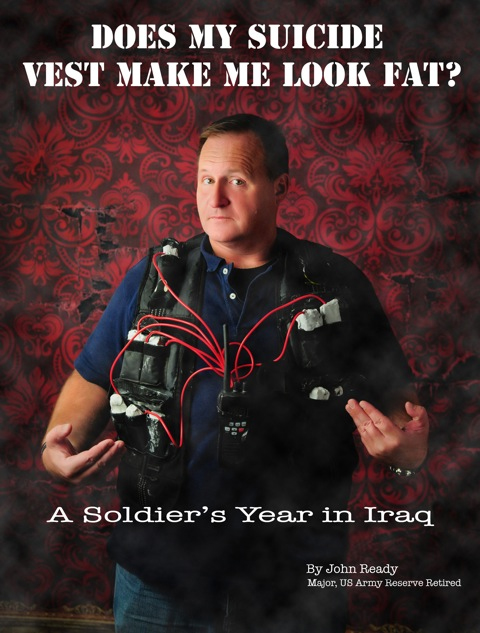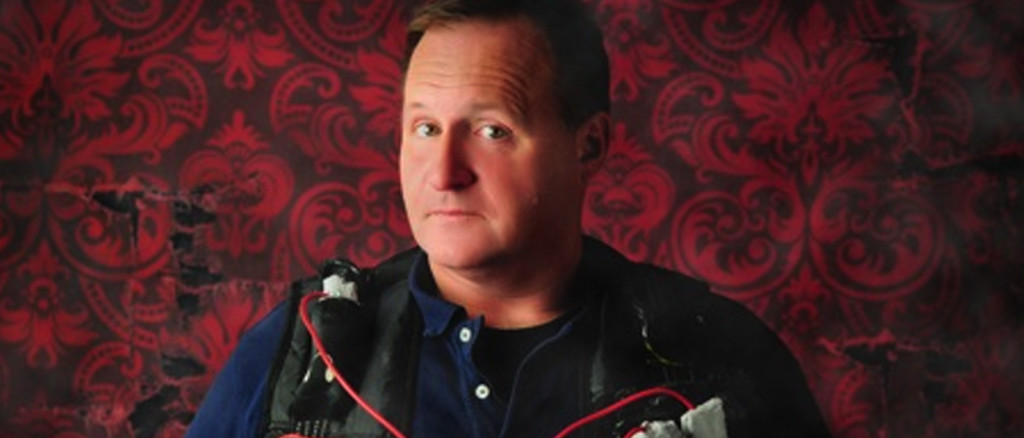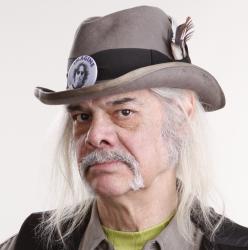A decade ago, Oneida resident John Ready spent a year on active military duty in Iraq. Fifteen years of preparation and training, he reflects now, provided no real relevance for the experience. During that year, Ready sat at a desk in an abandoned building equipped with air conditioning, not in a front-line trench, yet he gained enough perspective on the insane, stupid, humorous, surreal and tragic events that promote extensive post-traumatic stress and a growing suicide rate to chronicle them in a series of self-published vignettes, Does My Suicide Vest Make Me Look Fat?
A book signing party Nov. 11 at Pastabilities served as a local observance of an emerging national phenomenon: a focus on the contention that while war is not funny, a lot of funny things happen in a war, and that appreciation of the humor can promote a profound healing.
Early in his fourth tour in Iraq, an improvised explosive device took out the humvee Bobby Henline was riding in and killed the four soldiers he was riding with. In a coma for two weeks, he lost his left hand and suffered severe burns and bone fractures to his face. In rehab, he told jokes to others trying to mend body and spirit, with enough success that his therapist was able to convince him to become a stand-up comedian.
“The skin on my scalp burned off,” he tells audiences, “so the doctors replaced it with my stomach. When I eat too much, I get headaches.”

Ready says fear of being seen as making light of the tragedies of war and the sacrifices made by families who lose their children delayed him taking the book’s humorous approach. “But funny and tragic stories are both about people in impossible situations,” he writes, “and both need to be told.”
He supplements that approach with ironic quotations: “War is God’s way of teaching Americans geography,” from Ambrose Bierce, for instance; and “the reason the American Army does so well in wartime is that war is chaos, and the American Army practices it on a daily basis,” from a post-war briefing of a German general.
Sometimes, however, the humor is lost in the irony, as with, “The beatings will continue until morale improves,” claimed as standard operating procedure in most Army units.
And the national phenomenon is not limited to humor. Suzanne Collins, author of The Hunger Games series, was 6 when her career military father returned from Vietnam. “He, I think, thought it was his responsibility to make sure that all his children had an understanding of war, about its cost, its consequences,” she says. That consciousness, she maintains, crafted her goal of writing what she calls a “war-appropriate” story for every age of American youth, which she feels she has achieved with the completion of the picture book Year of the Jungle, about her father’s year in Vietnam.
Ready’s Does My Suicide Vest Make Me Look Fat? can be purchased through his website, www.soldierpress.com for $17.76 in paperback ($19.18 with tax) and $5.95 on Kindle through Amazon.



